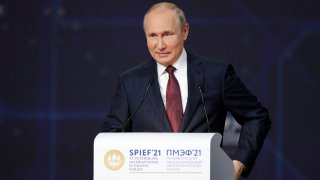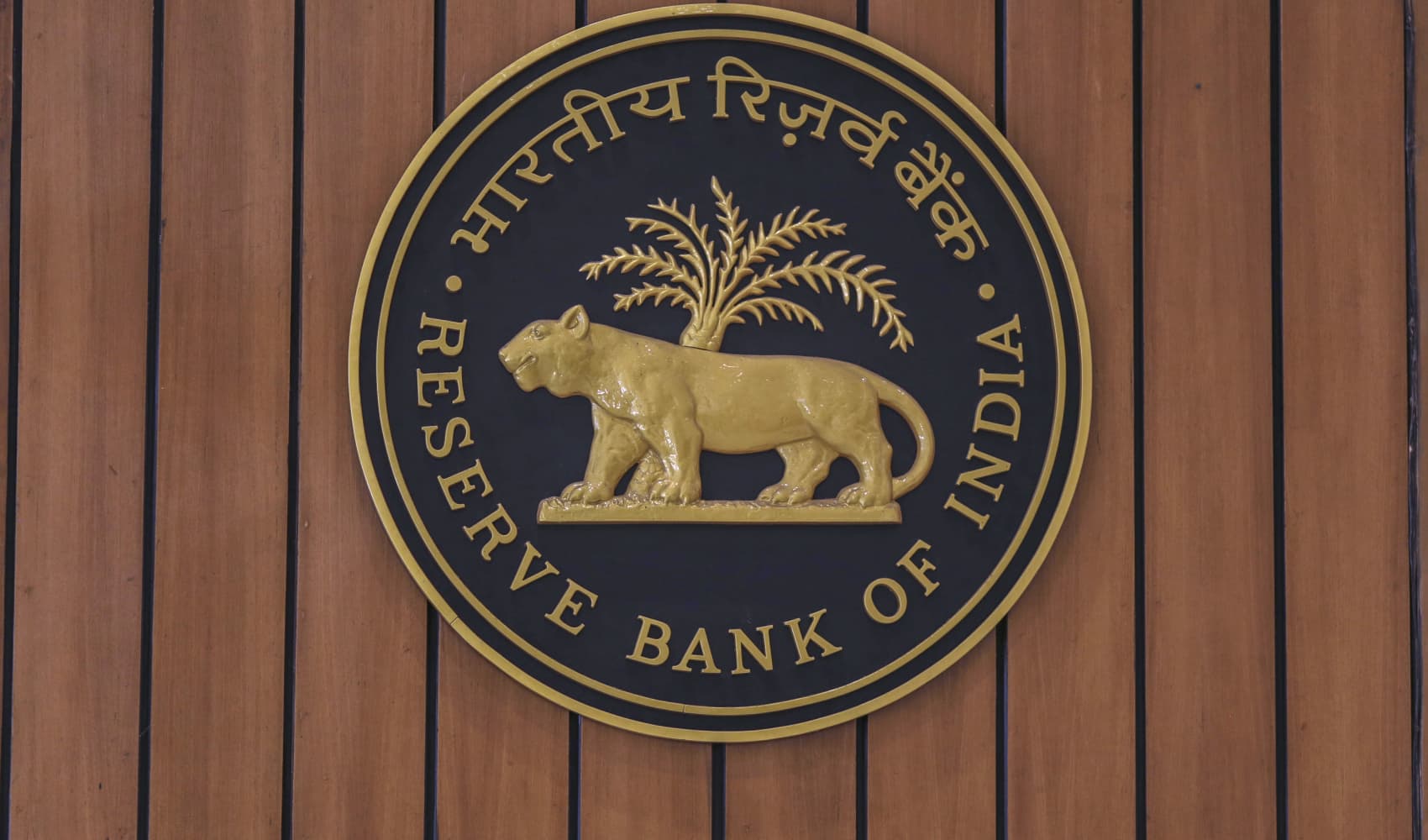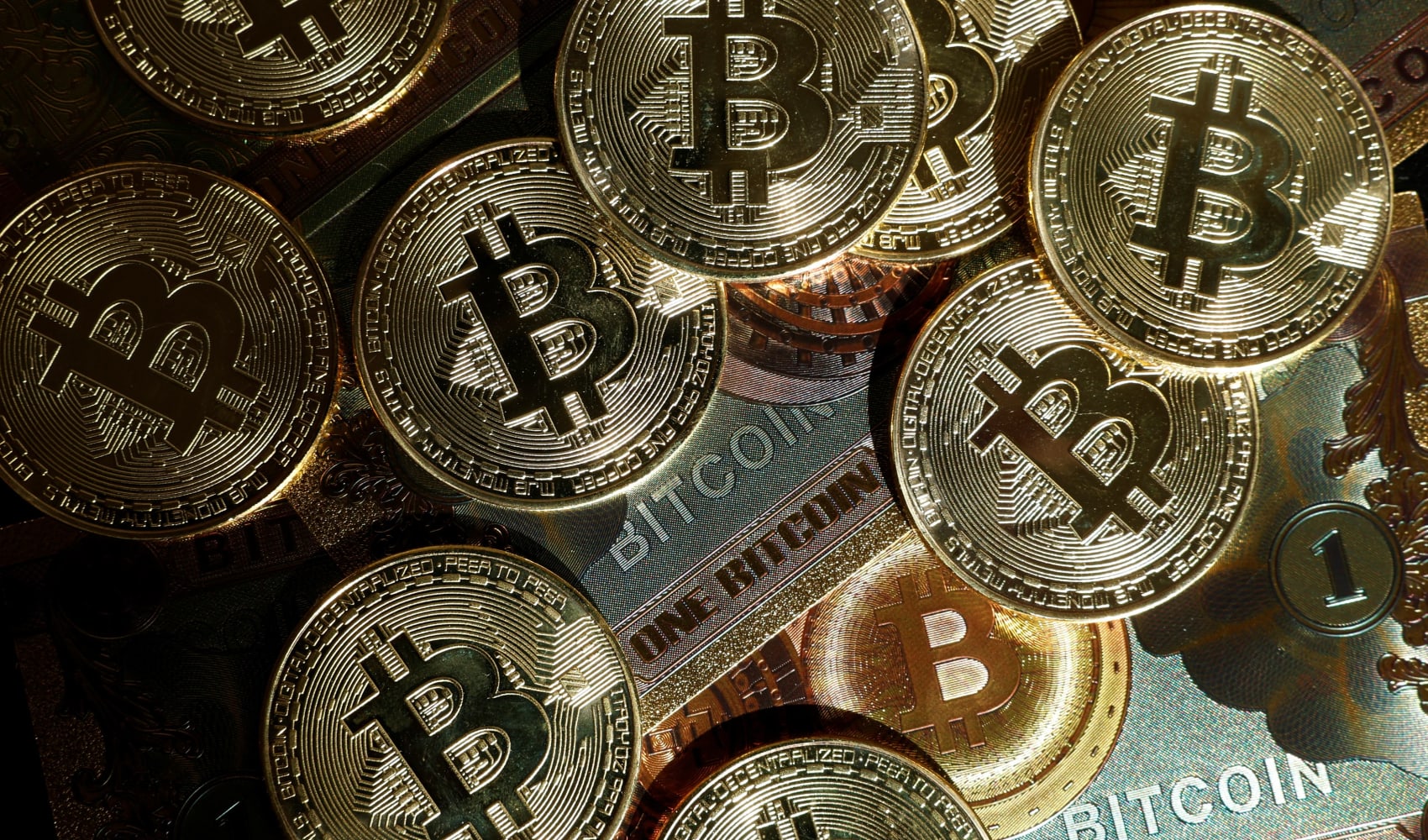
- Speaking during a plenary session at the annual St. Petersburg International Economic Forum, Putin said: "The Russian pharmaceutical industry is willing to continue to boost the production of vaccines so we are not just fully covering our own needs."
- "We can also provide foreign citizens with a chance to come to Russia and get vaccinated here. I know that given the efficiency of our vaccines, there is a high demand for that," he continued, according to a translation.
- His comments come as pressure intensifies on the world's wealthiest countries to do more to broaden the global access of Covid vaccines.
Russian President Vladimir Putin on Friday requested the government prepare the way for foreign citizens to get vaccinated against Covid-19 in the country for an undisclosed fee.
Speaking during a plenary session at the annual St. Petersburg International Economic Forum, Putin said: "The Russian pharmaceutical industry is willing to continue to boost the production of vaccines so we are not just fully covering our own needs."
"We can also provide foreign citizens with a chance to come to Russia and get vaccinated here. I know that given the efficiency of our vaccines, there is a high demand for that," he continued, according to a translation.
"In that regard, I would like to ask the government to analyze all aspects of this issue until the end of the month. So that, of course, in compliance with all safety measures and sanitary requirements to organize the conditions for foreign citizens to get a chance to get a vaccine on a commercial basis," Putin said, without specifying the cost.
Russia has approved four Covid vaccines for domestic use. The most widely used Sputnik V vaccine has so far been registered in 65 countries worldwide, according to Russia's sovereign wealth fund.
Get Tri-state area news delivered to your inbox.> Sign up for NBC New York's News Headlines newsletter.
The price of Sputnik V is less than $10 per shot, with two doses required over a gap of 21 days.
Money Report
Russia has been criticized for pursuing a strategy of selling or donating Covid vaccines abroad in order to extend its influence worldwide. Moscow denies that this is the case.
Putin's comments come as pressure intensifies on the world's wealthiest countries to do more to broaden the global access of Covid vaccines.
Equitable access to vaccines is reportedly set to be top of the agenda when G-7 leaders meet in the U.K. next week.
The urgency and importance of waiving certain intellectual property rights on Covid vaccines and treatments amid the pandemic have been underscored by the WHO, health experts, civil society groups, trade unions, former world leaders, international medical charities, Nobel laureates and human rights organizations.
India and South Africa jointly submitted a proposal to the World Trade Organization in October last year, calling for the need for policymakers to facilitate the manufacture of Covid treatments locally and boost the global vaccination campaign.
Several months on, the proposal continues to be stonewalled by a small number of governments — including the EU, U.K., Switzerland, Japan, Norway, Canada, Australia and Brazil.
Nord Stream 2
Separately, Russia's Putin said the first line of the Nord Stream 2 gas pipeline to Germany had been completed. The second line is yet to be finished.
The controversial 1,230-kilometer (764-mile) undersea pipeline is set to become one of the longest offshore gas pipelines in the world. It is designed to deliver Russian gas directly to Germany under the Baltic Sea, bypassing Ukraine.
Alongside several European countries, the U.S. opposes the pipeline, calling it a "bad deal" for European energy security. President Joe Biden is under pressure to do more to halt the nearly-complete project.
Putin is scheduled to hold talks with Biden in Geneva, Switzerland on June 16.
There are doubts about whether the summit can achieve much, particularly given the poor state of diplomatic relations between the two nuclear powers.
Some U.S. lawmakers have criticized the Biden administration for giving the green light to the talks, pointing to the ongoing detention of opposition politician Alexei Navalny and the Kremlin's show of support for Belarus after Russia's neighbor diverted a commercial flight to Minsk last month.
At a press briefing last month, White House press secretary Jen Psaki dismissed suggestions the bilateral talks should be interpreted as a "reward" for Moscow.
"This is how diplomacy works," she said. "We don't only meet with people only when we agree. It's important to meet with leaders when we have a range of disagreements, as we do with the Russian leader."
For its part, Russia said the two presidents will hold talks to discuss the current status of bilateral ties, strategic stability problems and ongoing international issues such as the coronavirus pandemic and regional conflicts.
— CNBC's Holly Ellyatt contributed to this report.






